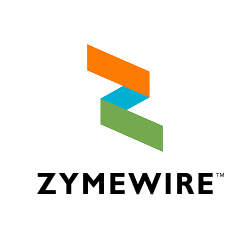Dive Brief:
- Zymeworks on Tuesday announced plans to pivot from developing and, potentially one day selling its own medicines to licensing them out and deriving revenue from related milestone payments and drug royalties.
- The strategic shift came one day after Zymeworks and partner Jazz Pharmaceuticals announced that a drug they’re partnering on, Ziihera, succeeded in a late-stage trial in a type of gastroesophageal cancer. That success triggered stock surges for both companies and positioned Zymeworks to receive up to $440 million in milestone payments from Jazz and another partner, BeOne Medicines, if the drug is cleared for use in those gastroesophageal tumors in a few countries.
- The company’s new strategy “creates more consistent value for shareholders,” Zymeworks CEO Kenneth Galbraith said in an email to BioPharma Dive, and “reduces the volatility and capital intensity typically associated with a traditional biotech model.”
Dive Insight:
Biotechs have a few different paths they can take as they advance their drugs through clinical testing. One option is to court a pharmaceutical acquirer. Another is to build a sales force and prepare to commercialize their own medicines. Zymeworks is choosing a third option, leaning on partnership payments — and, when its drugs get to market, a percentage of sales royalties — to defray research costs and sustainably grow revenue.
Zymeworks has been leaning in this direction for years. By the time Jazz in 2022 picked up rights to what’s now known as Ziihera, it had already formed several drug partnerships. And Galbraith noted that, unlike companies that are “structurally built” to sell their own drugs, Zymeworks intentionally designed those deals so larger firms would lead late-stage development “while we retain attractive economic participation.”
According to Galbraith, Zymeworks has evaluated “different strategic options” over the years. But the data released Monday pushed it to officially change course. Ziihera is already approved to treat a type of biliary tract cancer in the U.S. The new results position it not only to win a clearance in HER2-positive gastroesophageal adenocarcinoma, but possibly “replace” Herceptin and be used “across the spectrum” of patients with the disease, wrote Leerink Partners analyst Andrew Berens, who now expects the drug to generate as much as $2.9 billion in peak annual revenue.
The Canadian biotech’s stock climbed nearly 30% after the results were announced. Galbraith said the findings, combined with the advancement into late-stage testing of a drug partnered with Johnson & Johnson, have created a “fundamentally different financial profile for the company” and given it confidence in the “magnitude” of incoming future revenue.
“Before now, our potential milestone and royalty streams were still maturing, and the timing and scale of future cash flows were not predictable enough to anchor this strategic initiative,” Galbraith wrote. “This was the first time the internal and external conditions aligned — the data, the maturity of our partnered programs, and the evolving market environment.”
Jazz and Zymeworks plan to file for approval of Ziihera in HER2-positive gastroesophageal adenocarcinoma in the first half of next year. From there, the company intends to prove what it’s doing will lead to a sustainable business. According to Galbraith, Zymeworks plans to acquire more assets while using its internal research to advance “highly differentiated programs” it can partner off. Doing so, while avoiding the high costs and “binary risk” of late-stage development and commercialization, can make its cash reserves last longer, he said.
This “repeatable framework,” Galbraith added, should help Zymeworks “operate with significantly greater financial stability than a traditional biotech structure.”














